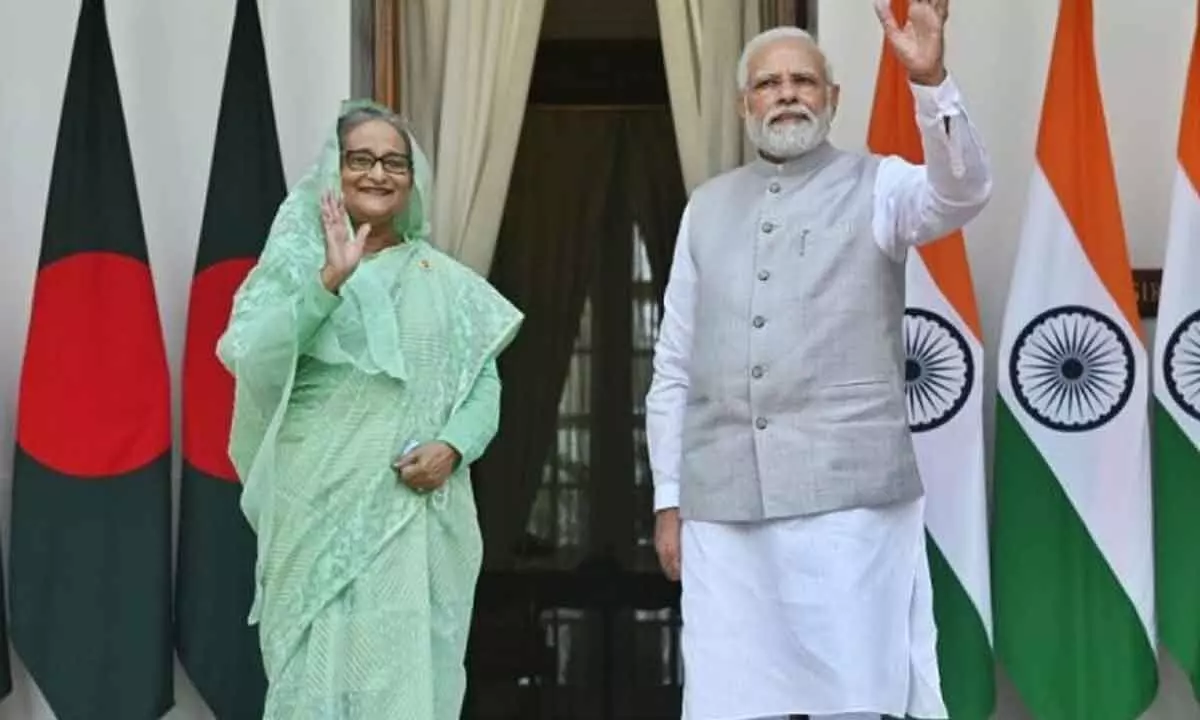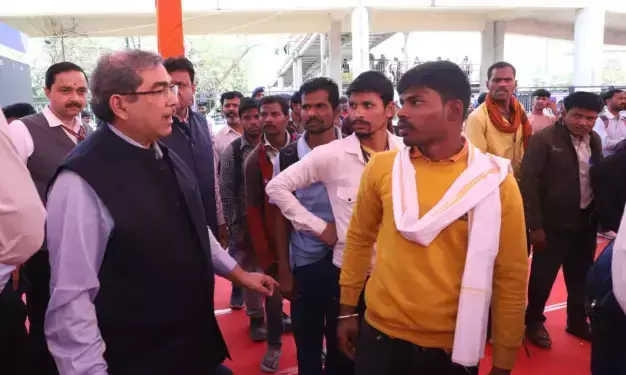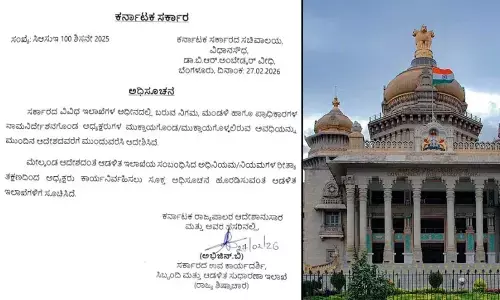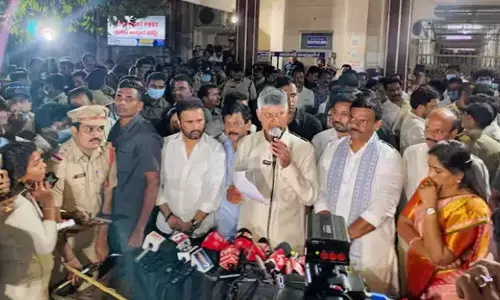The Golden Run of India-Bangladesh Ties

Sheikh Hasina has assumed office of the Prime Minister of Bangladesh for the fifth term – her fourth consecutive – after her Awami League secured an overwhelming majority. The 12th Prime Minister is firmly ensconced to lead the nation on the road to prosperity. India heartily cheered her re-election. Only a few western nations, the US and the UN expressed their reservations about the election boycotted by the main opposition BNP and its allies. Hasina can rely on India to impress upon the west to work with her government. India will also be keen to help her – to deter the growing Chinese sway in its neighbourhood.
At a time when the archipelago nation in the Indian Ocean, Maldives, is warming up to China, and Nepal and Bhutan are looking to China for funds and technology, India heaves a sigh of relief as Hasina returns to power. India and Bangladesh have been steadfastly improving ties since 2009 when she came to power. She has proved to be a reliable ally. She keeps India’s strategic concerns in mind even as her country is a part of Beijing’s Belt and Road Infrastructure Initiative (BRI). Bangladesh does accommodate China to meet her military needs. Yet, it views it as a developmental partnership and keeps abreast of India’s apprehensions. “We are very prudent in receiving any aid or funds. So people should not be afraid that Bangladesh would succumb to the Chinese,” said her foreign minister Abdul Momen just after the polls.
Internal stability in Bangladesh and its unprejudiced external stance are crucial to peace as well as security in India’s northeastern border states. Insurgents there often take refuge in sanctuaries in Bangladesh, which shares borders with West Bengal, Mizoram, Meghalaya, Tripura and Assam. The Avami League government is considerate of New Delhi’s concerns and does not back any of the insurgent groups.
Though India helped in creation of Bangladesh and was the first country to recognise its independence in December 1971, and despite its strong civilisational, cultural, social and economic relations with the country, it did face a turbulent phase after the assassination of Sheikh Mujibur Rahman in 1975. However, after Hasina’s ascent to power India-Bangladesh started growing so much so that the current external affairs minister, S Jaishankar, has lauded bilateral ties as a ‘model relationship’ in the Indian subcontinent. Both countries successfully settled a land border issue amicably in the last 10 years and reached an understanding on the waters, too. India’s Neighbourhood First policy, Teesta river dispute settlement, South Asian Free Trade Area (SAFTA) initiative, Ganga Waters Treaty, India-Bangladesh Friendship Pipeline Project, etc., bind both nations strongly.
Though India agreed to the Bangladesh, China, India and Myanmar Economic Corridor (BCIM), it had to backtrack as the BCIM was linked to China’s BRI which India is opposed to. India also faces latent anti-India feelings propped up by the Bangla opposition. Add to it geopolitics among China, US and Russia in wooing Bangladesh. However, India has a strong pillar of support and trust in Hasina. Following the assassination of her father and the first president of Bangladesh, Sheikh Mujibur Rahman, and most of his family on 15 August 1975 in a military coup, Hasina was in exile in India for six years. On the day of her election, January 7, 2024, the great septuagenarian leader and the longest serving Prime Minister of Bangladesh specially hailed India as a “great friend” and said her country considers New Delhi as the “next-door neighbour”. India reciprocates her feelings, and reposes trust in her – a sign of enduring partnership.










